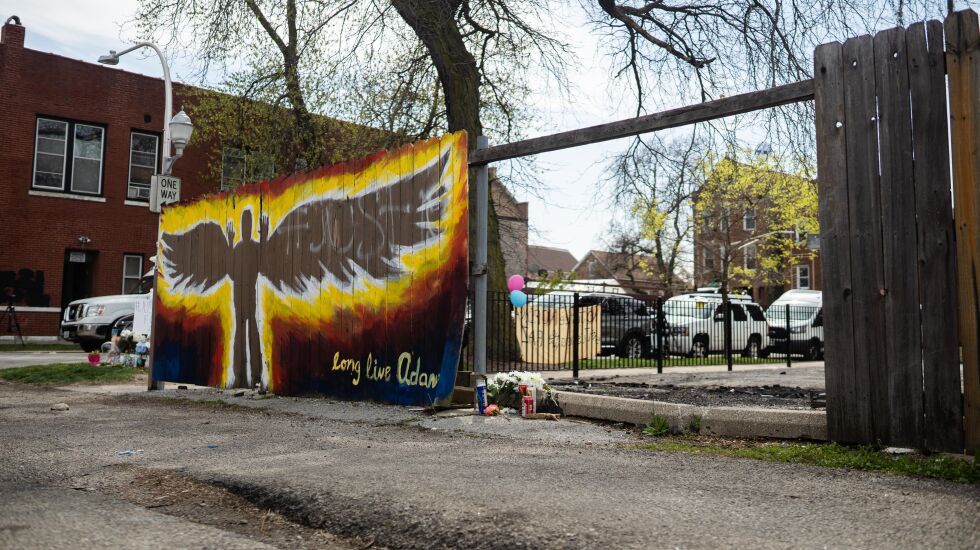
Formal disciplinary charges were filed Monday against the Chicago police officer who fatally shot 13-year-old Adam Toledo, setting in motion quasi-judicial proceedings to determine whether he should be fired.
Responding to calls of shots fired, Officer Eric Stillman chased Toledo into an alley in Little Village in March 2021 and fired a single shot into the boy’s chest, a split-second after Toledo dropped a handgun and raised his hands.
Stillman allegedly used unnecessary deadly force, failed to follow his training on foot pursuits and was slow to activate his body-worn camera, according to the charges filed with the Chicago Police Board by interim Police Supt. Eric Carter.
A status hearing in the case is scheduled for May 1.
The charges come after Police Board President Ghian Foreman ruled last October that Stillman should face dismissal, siding with the disciplinary recommendation of the Civilian Office of Police Accountability and against Carter’s predecessor, David Brown. The former superintendent agreed only with COPA’s finding that Stillman had failed to activate his body camera in a timely manner and recommended the officer be suspended for no more than five days.
Toledo’s death sparked widespread community outrage that was compounded by the fatal police shooting of 22-year-old Anthony Alvarez just two days later. The shootings, both captured by police cameras during foot chases, pushed the police department to quickly implement a new policy over such pursuits.
But neither case resulted in criminal charges. Cook County State’s Attorney Kim Foxx announced in March 2022 that her office wouldn’t prosecute Stillman or the officer who shot and killed Alvarez, Evan Solano. “There are no winners in this situation,” she said at the time.
Solano faced a similar initial hearing last July, when police board member Steven Block sided with Brown’s decision to suspend Solano for 20 days. Alvarez’s family responded by saying they were “appalled” by the ruling, which raised questions about how the resolution of such a controversial case could fall to just one person.
In Foreman’s ruling in the Toledo shooting, he acknowledged “the parties and the public will benefit from a full evidentiary hearing on this matter, and so referring this matter for a hearing before the police board is the appropriate next step.”
Stillman faces seven rule violations related to the charges, including unlawful or unnecessary use of his firearm and acting in a way that discredited the department. After the initial hearing at the start of next month, the board will oversee a pre-hearing conference and then the presentation of testimony and evidence during a public hearing. Board proceedings can stretch nearly a year.
Stillman’s attorney, Tim Grace, said his team is “very disappointed in the Chicago Police Board and very disappointed in COPA that they don’t recognize the difficulty that all police officers have.
“This case is a prime example of the tone deafness of our oversight and a lack of appreciation of the extraordinarily dangerous situations that Chicago police officers find themselves [in] every day.”







